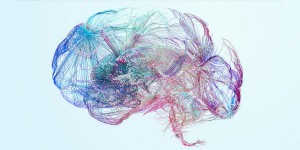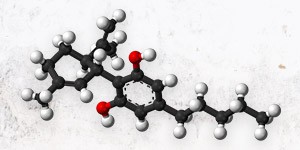By Gudrun Lorenz

Gudrun Lorenz-Eberhardt attended the Medical University in Graz. She is a Medical Doctor for Gynaecology and Obstetrics and she is working with Cannabinoids since 2017.
In western Europe, life expectancy for women has doubled in the last hundred years thanks to improved working conditions, nutrition, and medical care. The expected lifetime for women is currently 83 years.
In the peri-menopause, at around the age of 45 years, the blood levels of female hormones decrease. Primarily, there is a shortening of the menstrual cycle. In the following years, anovulatory cycles and the absence of menstruation for some months occur. When there has been no bleeding for more than twelve months, the last period is the so-called menopause. There are no more ovulations, and the fertile period of a woman's life is over.
Menopausal symptoms can begin around the age of 45 years and may end around the age of 65 years. 30% of women experience a severe reduction in their quality of life, 40% complain about moderately acceptable symptoms, and 30% feel only slightly affected.
Menopausal symptoms can be classified into three groups:
- Vegetative menopausal symptoms: hot flashes, dizziness/headache, palpitations
- Mental menopausal symptoms: sleeping disorders, depressive mood, irritability/nervousness, lack of drive, lack of concentration
- Organic menopausal syndrome: osteoporosis, cardiovascular disease/hypertension, metabolic disorders, skin lesions, vulvovaginal atrophy
The well-known effects of cannabidiol (hereafter CBD) are that it is analgesic, relaxing, antiepileptic, anxiolytic, sleep-promoting, antipsychotic, anti-inflammatory, pain-killing, and regenerating. At the same time, CBD has no psychotropic effects and no potential for abuse. A dosage of 1000mg CBD per day is normally well-tolerated.
In case of overdose, side effects such as headache, a slight drop in blood pressure, or slight drowsiness and dizziness may occur. Interactions may occur by taking opioids, betablockers, Warfarin, Diazepam, Venlafaxin, or Citalopram. CBD can increase the blood levels of these drugs. In the case of taking Tamoxifen, as women with breast cancer often do, CBD may decrease the blood-level.
The following are my experiences in treating individual peri- and post-menopausal symptoms with CBD, either orally or topically.
Hot Flashes
Changes of the hormonal balance disturb the centre in the hypothalamus, which is responsible for the regulation of temperature, leading to vasomotoric instability. Hot flashes last from three seconds to three minutes, up to forty times a day. The hot flash begins in the chest and comes up to the neck and there is a short-term increase in trans-epidermal water loss, as sweating occurs.
Unfortunately, the use of CBD usually does not bring any significant relief, so I primarily suggest phyto-therapies such as isoflavones, red clover, soy, and lady´s mantle, with the option of switching to a hormone replacement therapy, either with nature-identical hormones or with synthetic hormones, in addition to a vegetarian diet and exercise.
Dizziness and Headache
These symptoms are often combined with ringing in the ears and hot flashes. Here, CBD is a very successful therapy. Many women like to use a CBD roller.
Palpitations, Heart Sensations
In the peri- and post-menopause, female patients can suffer from sinus tachycardia and episodes of hypertension. After ruling out other cardiac issues, CBD full spectrum oil drops under the tongue or CBD mouth-spray are very effective for lowering heart rate and blood pressure.
Sleeping Disorders
Most sufferers have problems staying asleep. REM phases are shortened and depth of sleep is reduced. Decreasing progesterone levels lead to sleeping disorders, since progesterone and metabolites have sedative and sleep-promoting effects. Here, CBD can be a very helpful way to prevent the negative consequences of a lack of sleep, which include lack of drive, nervousness, irritability, lack of concentration, depressive mood, weight gain, and premature cell ageing.
Melancholic to Depressive Mood
In peri-and post-menopause, episodes of a feeling of inner emptiness often occur, often relating to the woman's personal relationship, and/or her social and professional environment. Many women also report a feeling of abandonment when their children move out, also known as "empty nest syndrome".
After clarification of other hormonal causes, such as thyroid dysfunction, the use of CBD brings balance and some distance to problematic situations.
Osteoporosis
Osteoporosis is a lack of bone mass and density with destruction of the microarchitecture and an increased risk of fractures. Osteodensitometry is used diagnostically. In addition to treatment with bisphosphanates, calcium, and vitamin D, nutrition and physical activities are important therapeutic cornerstones.
Many patients with osteoporosis complain of diffuse bone pain. These can be treated very positively with the administration of CBD, possibly additively. The desire for natural therapy is very often expressed, since usually several medications have to be taken.
Joint Problems
The menopause leads to a reduction in joint fluids. Women complain about restricted mobility, especially in the morning hours. Additional arthritic changes and cartilage damage in the joints usually lead to pain and a reduction in the quality of life. As a result, the deformation of the fingers and small joints makes women despair, as fine motor skills are reduced. The application of CBD, orally or locally – the latter a very popular treatment – is a helpful alternative to other anti-inflammatory drugs.
Rheumatic Diseases
Among the autoimmune diseases, the most common is rheumatoid arthritis. Symptoms include pain, swelling, and stiffness in the joints, caused by inflammatory processes. Because cannabinoid receptors and endocannabinoids are also present in inflamed joints, cannabinoids have immunomodulatory effects. For this reason, the use of CBD is very effective. CBD is usually applied locally. Oral intake may help to stop the progression of arthritis.
Skin
Due to the drop in female hormones, the skin loses elasticity and collagen decreases. These changes lead to atrophy, the formation of wrinkles and cracks, dry skin, skin flaws, and reddened and easily inflamed skin areas.
A number of my patients apply pure CBD full-spectrum oils directly to smaller affected skin areas or CBD containing creams and lotions to the entire body to positive effect.
Today, CBD anti-ageing care products are offered by many cosmetics companies with the promise of reducing fine lines and wrinkles. Some hemp cosmetics are made with CBD crystals, rarely with full spectrum oil, and some contain only hemp seed oil.
Increased Hair Loss and Hair Thinning
There is no indication of a positive effect with the use of CBD.
Vulvovaginal Atrophy
As a result of decreasing female hormones, the urogenital tract reacts with a progressive process: the thinning of the vaginal epithelium and the loss of vaginal rugae due to the breakdown of the supporting collagenous fibres. 45-63% of post-menopausal women experience symptoms of vulvovaginal atrophy, such dryness, itching, burning, reduced lubrication, irritable bladder symptoms, and reduced elasticity. These symptoms can lead to dyspareunia, pain during sexual intercourse, and the impossibility of a fulfilling sexual life.
Since, in my experience, many women patiently accept symptoms of the urogenital syndrome as a purely age-related phenomenon, patients have to be actively asked about these symptoms. The treatment options are hormone replacement therapies: Estriol is administered locally as a vaginal suppository and/or vaginal cream.
Many women seek hormone-free therapies for a variety of reasons. CBD vaginal suppositories or CBD creams can be highly recommended. Initial applications of both hormone-containing and hormone-free local therapies can initially lead to a slight burning sensation, especially if the vagina is irritated and atrophic. This should be communicated to the patient at the beginning of the treatment.
I also treat the symptoms of vulvovaginal atrophy in breast cancer patients, especially under anti-oestrogen therapy with local CBD administration. In observation trials, the application of local Estriol and local CBD therapies showed similarly good results.
Atrophic Lichen Sclerosus
Atrophic lichen sclerosus can occur in some post-menopausal patients. This is primarily a benign chronic autoimmune inflammatory skin disease. However, affected women have an increased risk of developing skin cancer, so regular medical checks are important. Subjective symptoms are itching and burning in the anogenital area. There are whitish, shiny areas of skin and injuries to the skin surface. If left untreated, the progression of the inflammation can lead to scarring, adhesions, and the shrinkage of skin areas. After a histological clarification, a local CBD-therapy, in combination with local steroid creams, is very effective.
The fat content of the suppositories and creams places a protective layer over the treated areas and has a positive impact on the moisture content of the tissue. In addition, phytocannabidiol has anti-inflammatory, tissue-regenerating, and analgesic effects.
Following many years of experience in the use of CBD in my gynaecological life, I will summarise by stating that CBD can successfully treat many peri-and postmenopausal women. The acceptance of herbal therapies, including CBD, is extremely important, and many women appreciate this type of medical support.


